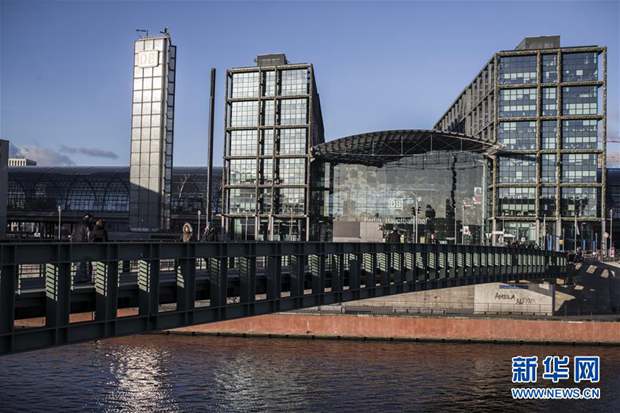Germany attempts to chart an independent way
- By Sumantra Maitra
 0 Comment(s)
0 Comment(s) Print
Print E-mail China.org.cn, July 30, 2018
E-mail China.org.cn, July 30, 2018

A notable development in the past few weeks has been the belated understanding in Berlin that the old global order has shifted and a new one is still not upon us. In the interim, there is a visible shift in German international relations.
Germany, the powerhouse of Europe and the venerable future leader of the global international order, is slowly starting to form and create a new alternative to the international order, and nowhere is this more visible than in the German foreign minister's visits to Japan and South Korea.
German Foreign Minister Heiko Maas who is currently touring Asia, but skipped China and India, is clear about his intentions that he and his country and a German-led European Union wants to create, strengthen and shape the liberal international order, to build what he calls an "alliance of the multilateralists" with concurring "liberal democratic" powers.
The thrust of the argument is similar to what we have heard from Merkel before. Maas, during his tour was quoted in a Zeit Online article as saying that Germany and Japan should start an alliance, and he marked the three disruptive forces of Russia, China and the United States under Trump. Russia and China are permanent adversaries, but Trump-led U.S. is not quite an adversary yet but is in the process of becoming one.
While conceding that America is a forever friend and ally, he mentioned that "America is bigger than the White House. Trump will not change that either. He can tweet as much as he wants." This, in an earlier age would have been considered a subtle attempt at divide and rule. America is divided to the core and is also open to lobbyists of all stripes, and this is a German attempt to reach out to the domestic opposition to Trump.
However, Germany is not just hinting to the U.S. and Trump. For example, on Russia, the invasion of Ukraine and annexation of Crimea was noted as a destabilizing force. China's growing economic power was also considered a power to be reckoned with. Naturally, this received a lot of attention in Japanese media.
During the joint press conference, Taro Kono was quoted by the Japanese media as repeatedly stressing the importance of closer cooperation between countries which essentially share the fundamental characteristics of liberal democracy, and not just free trade.
With regards to Asia, there was a serious concern about unilateral actions by great powers. Heiko Maas added that it is tough for Germany or Japan to individually shape the global rules, because of the giants of the system, but a deeper German-Japanese alliance, alongside the EU would help further that cause.
Pointing to U.S. protectionism and technology transfer to China as the two problems, he said that these concerns are valid and need to be dealt with. "Alone, it will be tough for us to be a ‘rule maker' in this multipolar world. When we combine our powers, we can perhaps become something like a ‘rule shaper' – designers and motors of the international order," he was quoted as saying.
Unfortunately, this new German assertiveness will not only be related to China or the U.S. Recently Germany has nudged the U.K. to speed up the Brexit decision process, even when the EU has basically rejected every single suggestion that the U.K. has offered. Merkel has also lamented that Germany and the EU are losing out to China and other powers when it comes to artificial intelligence research.
There's a palpable idea running in Atlanticist circles that Europe needs to stop relying on the U.S. It is important to see, however, how much this rhetoric matches reality. Germany, after all, is dependent on the U.S. to provide security. The German air force has four operational fighters and its armed forces are in worse shape than any developing Asian power.
Germany also lacks the single economic might, or the political will to unify Europe. Plus, with growing American isolationism, Germany needs other big trade powers like China and India. Unfortunately, German reliance on values and liberal democracy makes it incapable of dealing with other powers bilaterally and strictly based on interests when the world itself is shifting from a rule-based order to a great power competition.
Germany can desire all it wants to shape international politics to form alliances with likeminded liberal powers, but in the worst-case scenario, it would need both the U.S. and China. It chooses to antagonize both the great powers at its own peril.
Sumantra Maitra is a columnist with China.org.cn. For more information please visit:
http://www.ccgp-fushun.com/opinion/SumantraMaitra.htm
Opinion articles reflect the views of their authors only, not necessarily those of China.org.cn.





